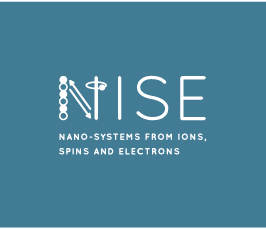Rational development and investigation of functional materials
Seminar
- Date: Nov 30, 2018
- Time: 02:00 PM (Local Time Germany)
- Speaker: Dr. Michael Gaultois
- Leverhulme Research Centre for Functional Materials Design, University of Liverpool
- Location: Max-Planck-Institut für Mikrostrukturphysik, Weinberg 2, 06120 Halle (Saale)
- Room: Lecture Hall, B.1.11

The scientific community is actively searching for new functional materials, however the extremely large space of chemical possibilities makes it a time consuming and high-risk endeavour and finding materials with a specific property of interest is extremely challenging. This talk will describe some recent investigations on novel material discovery using statistical classifiers as well as first principles calculations combined with experimental characterization of predicted materials. These methods have been used to explore new families of thermoelectrics, carbon capture materials, as well as entirely new phases which were investigated out of pure scientific curiosity. Also, given the technological interest in VOx phases (due to metal-insulator transitions), I will also be sharing some recent in-situ studies on the Li-intercalation of V6O13 using X-ray diffraction and electrochemistry.
Biography: Dr. Michael Gaultois is the Theme Lead for Experimental Materials Discovery at the newly-established Leverhulme Research Centre for Functional Materials Design, housed in the Materials Innovation Factory at the University of Liverpool. He carried out his PhD research as a Fulbright International Science and Technology Fellow with Ram Seshadri at the University of California, Santa Barbara, where he worked on thermoelectric materials. He then moved to the University of Cambridge to work with Clare Grey as a Marie Skłowdowska--Curie Fellow, where he used data-driven approaches for new material discovery in thermoelectric materials and carbon dioxide capture materials. Dr. Gaultaois’ areas of interest include electrical transport and magnetic properties, metal insulator transitions, structural distortions and disorder, and the use of x-ray spectroscopy, x-ray and neutron diffraction, and total scattering for average and local structural characterization.